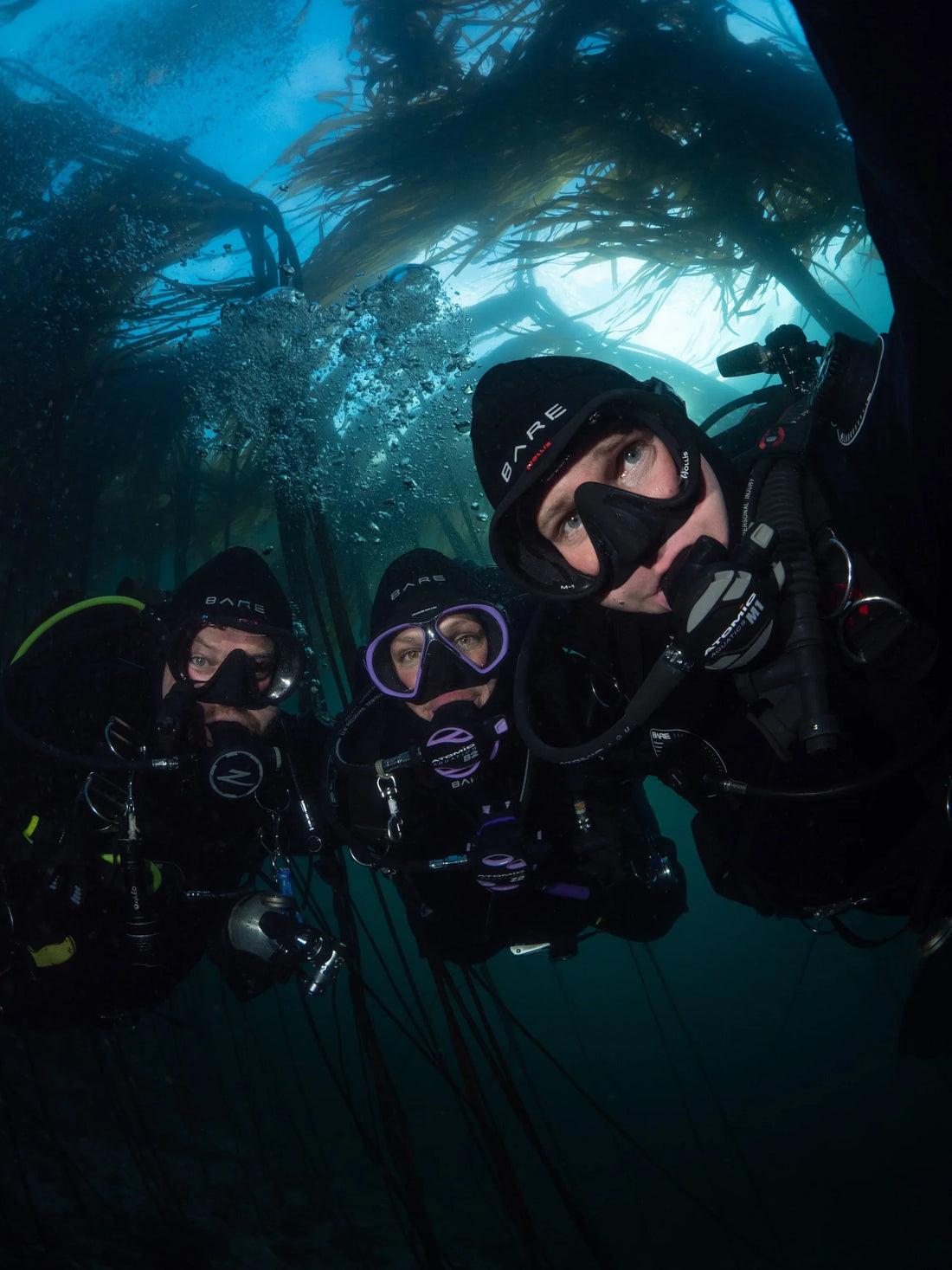
How to Pick the Right Wetsuit
Share
Have you ever had a wetsuit that fits you like a glove? That was easy to put on, fast drying, and all the seams stayed together year after year?
At Pacific Pro Dive, that is our gold standard for choosing wetsuits and we think everyone deserves a wetsuit like that.
A wetsuit is a garment worn to provide thermal protection while wet. The primary function of a wetsuit is thermal insulation to keep the wearer warm in conditions where they would otherwise lose body heat rapidly due to heat transfer by relatively large quantities of water. Wetsuits are usually made of foamed neoprene, and are worn by surfers, divers, windsurfers, canoeists, and others engaged in water sports and other activities in or on water.
Its purpose is to provide thermal insulation, buoyancy, and protection from environmental hazards, abrasion, ultraviolet exposure, stings from marine organisms and even wind chill. It also contributes extra buoyancy. The insulation properties of neoprene foam depend mainly on bubbles of gas enclosed within the material, which reduce its ability to conduct heat. The bubbles also give the wetsuit a low density, providing buoyancy in water.
Wetsuits are typically made of closed-cell foam neoprene, a synthetic rubber that contains small bubbles of nitrogen gas when made for use as wetsuit material (neoprene may also be manufactured without foaming for many other applications where insulating qualities are not important). Nitrogen, like most gases, has very low thermal conductivity compared to water or to solids, and the small and enclosed nature of the gas bubbles minimizes heat transport through the gas by convection in the same way that cloth fabrics or feathers insulate by reducing convection of enclosed air spaces. The result is that the gas-filled cavities restrict heat transfer to mostly conduction, which is partly through bubbles of entrapped gas, thereby greatly reducing heat transfer from the body (or from the layer of warmed water trapped between the body and the wetsuit) to the colder water surrounding the wetsuit.
Why should you wear a wetsuit?
As mentioned above, wetsuit helps you retain body heat by insulating you from the water. Wetsuits also protect your skin from the elements and occasionally sea creatures and sharp objects such as corral.
Is it better to have a tight or loose wetsuit?
Wetsuits are designed to trap a layer of water between your skin and the scuba wetsuit to keep you insulated. Too tight a fit will not allow the water to enter. On the other hand, too loose will not allow the water to stay trapped and you won’t get the insulation effect that you need.
How do I know if my wetsuit is too big?
If it is too loose, water will not stay trapped and cooler water will be allowed to flow in reducing any effectiveness in keeping you warm.
Can a wetsuit be washed in a washing machine and dried in a dryer?
Not recommended. Instead, rinse your wetsuit with fresh water and a quality dive wetsuit shampoo to avoid odors from bacteria buildup and hang to dry.
Does a wetsuit really keep you warm?
Yes. There is a noticeable difference. Our body temp is, on average, 37C and when you’re in the water for multiple dives or long periods, you lose body heat (even in warm waters). The scuba wetsuit works to provide the insulation you need to keep you comfortable.
Are wetsuits waterproof?
No. Wetsuits are designed to allow a thin layer of water in, which is warmed by your body heat and serves as insulation keeping you warm.
If you’ve been thinking about or planning to own a wetsuit, the staff at Pacific Pro Dive are experts. We can answer all of your questions and provide you with all the information you need to select the wetsuit that’s best suited for you.
